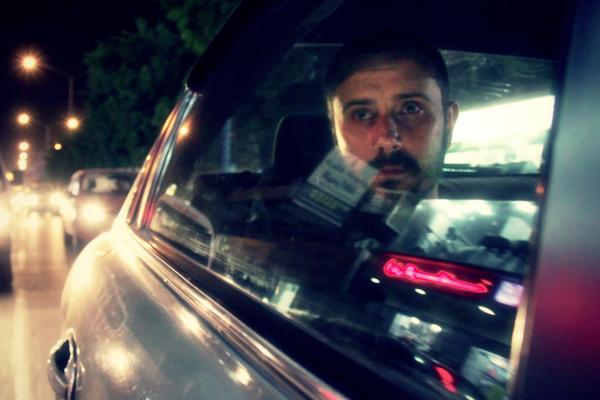"Obamacare" continues to be at the forefront of our nation’s health care epidemic. A recent report from PwC shows falling numbers within the system that are due to affect the overall cost of health care policies next year. Despite PwC’s report that the costs of health care are lower than years prior, critics claim that costs still aren’t where they need to be. The Associated Press reports:
For years U.S. health care spending has grown much faster than the overall economy and workers' wages, but since the recession those annual increases have slowed dramatically. The debate now is whether that's a continuing trend. The answer will be vitally important, not only for companies and their employees, but for taxpayers who foot the bill for government programs such as Medicare, Medicaid and Obama's coverage expansion
Read more here.
Days before President Barack Obama's high-profile speech on drones and U.S. counterterrorism efforts, Sojourners sat down with investigative reporter Jeremy Scahill to take an inside look at U.S.-led covert wars and the drones that have become an integral part of our global “war on terror.”
His thesis?
"After years of traveling in these countries, I really believe that we’re creating more enemies than we’re killing.”
In some respects, drones are simply a new tool of old empire. Scahill, author of Dirty Wars: The World is a Battlefield and producer of the documentary of the same name, now in theaters, calls this an "unending war ... being legitimized under a popular Democratic president, who is a constitutional lawyer by trade.”
Indeed, within five years, the Bush administration's invasion of Iraq for terrorist attacks the country did not commit has transformed under the Obama administration into pre-emptive assassinations halfway around the world, for crimes citizens have not yet committed. The result, Scahill suggested, is our collective complicity to “unending war.”
Despite the spiritual strengthening afforded by my monastic experience, this first episode of the show gave me a clearer picture of my inner, ongoing conflict. And this is what I see: in the midst of real life, when the motorcycle engines are lit and the race is on, I want to win. Regardless of what I read in the scripture about establishing your worth in God’s unique, creative expression and what I learned from my soul-nourishing experience with the monks, it pisses me off to lose.
Yes, there was an arduous journey ahead; and, yes there were people who needed attention. But in the moment, I want to prove myself. I’ve seen this so often in my life — when my connection with God grows cold, the endeavor becomes more about my performance and less about God’s presence.
We compete to determine our strengths and weaknesses, not to determine our value. I understand that. I think only a Jesus-grace experience can finally answer the value question. But in real life I’m not there yet. I still struggle with the intersection of my faith in Jesus and my fierce competitive nature. I make more out of winning (or losing) than my faith warrants.
In Latin, the word competition originally meant “to strive together or to come together toward a common goal.” In that sense, the team had come together in a spirit of true competition. Despite any egotistical desires, we grew stronger and engaged the mission as one — each of us better for the competition. And, though I don’t have it all worked out yet, I continue to trust The Great Storyteller — there is yet much grace for a fierce competitor and Whiskey Priest.
In the green hills of County Fermanagh, Northern Ireland, the world’s leading developed nations agreed on Tuesday to make individuals and companies pay the taxes that they owe. With the release this morning of the Lough Erne Declaration the G8 countries plan to implement greater tax collection internationally through fairer tax policies, greater financial transparency, and open trade.
The G8 plans to clamp down on tax-evaders and require shell companies — often used to take advantage of tax loopholes or to invest money anonymously —to identify their effective owners or primary beneficiaries. Developing countries, reported CNN, lose more in tax avoidance than they receive in aid. With the protocols agreed to today, indebted poor countries will be given access to the global information they need to collect the taxes they are owed.
Some anti-poverty campaigners describe the G8 deal as a historic achievement.
Could drone surveillance be the answer to conservative’s immigration uncertainties? Republican senators got together Monday to discuss their ideas on how to ensure tight security between the U.S.-Mexico border if in fact the immigration bill were to pass. Putting into action their notions to strengthen homeland security, Republican senators shared their ideas with a plan to get conservative’s on board with their proposals. Reuters reports:
The proposal is aimed at a satisfying calls by Republicans for further steps to secure the U.S.-Mexico border as part of the legislation currently being debated in the U.S. Senate that would grant legal status to millions of undocumented immigrants already in the United States.
It could include provisions for deploying high-tech surveillance equipment and other specifics, according to congressional sources and people close to the talks.
Read more here.
A couple of weeks ago I posted about Mumford and Sons. I suggested that the Wednesday concert was, for me, a festival of devotion. Friday's concert, however, was something else. It was an eschatological event. Not transcendent, though others have used that word to describe it, but immanent, apocalyptic, eschatological. There we were gathered all in one place, as the Bible story goes, and the place exploded. Cathleen said more than once that the Holy Spirit was present. I love it when shows differ from night to night. I love it when the audience brings something new. I also wonder how such a noticeable distinction at a concert can be a helpful reminder for all of us who plan liturgies.
My wife is an actress. She will do the same show five or six times a week for six to eight weeks. The same play. Every night. But what she will also say is that it is never the same play every night. Actually, she has said that if you do it right it should never be the same piece twice. There is no such thing as a repeat performance if one understands repetition is not exact duplication.
Similarly, a live concert is not a track on a CD. One does not show up to a concert and press "play." No, it is a singular performative event. Even when, as with Mumford and Sons, the set list is similar and the choreography (yes, even Mumford and Sons have a couple of staged bits) is the same, the concerts still feeldifferent. Why? Well lots of reasons, but mostly because they are different.
President Barack Obama is expected to call upon lawmakers and Congress Tuesday as he asks for their support in backing his measures concerning gun safety. In the wake of announcing 21 of 23 tasks completed on the “executive to-do list,” Obama is hoping for funding as conversations about gun safety continue. The Los Angeles Times reports:
Administration officials say there has been progress on several actions taken by Obama under executive authority, including directives to end the freeze on gun violence research and to reduce barriers that keep states from submitting records to the national background system.
Read more here.



